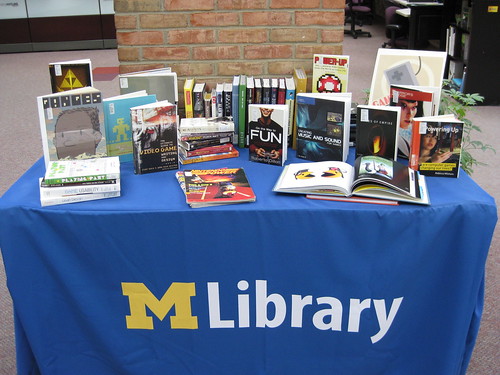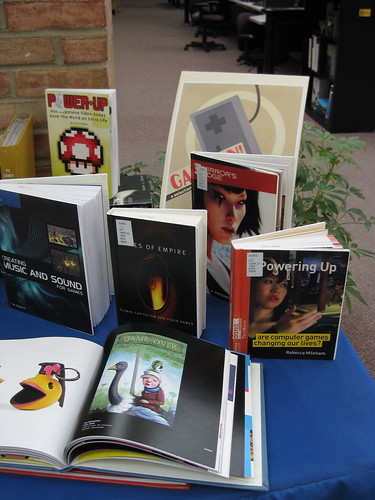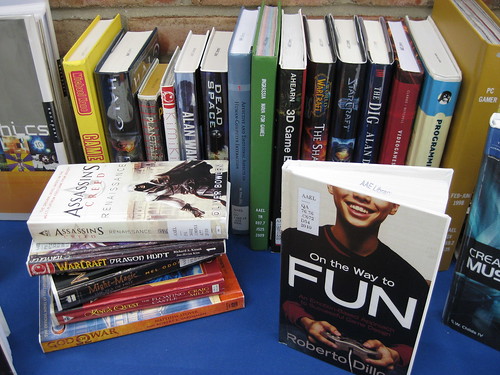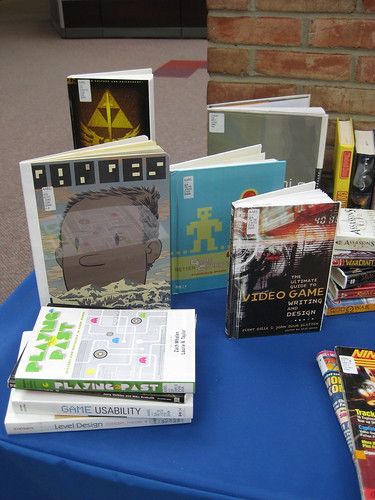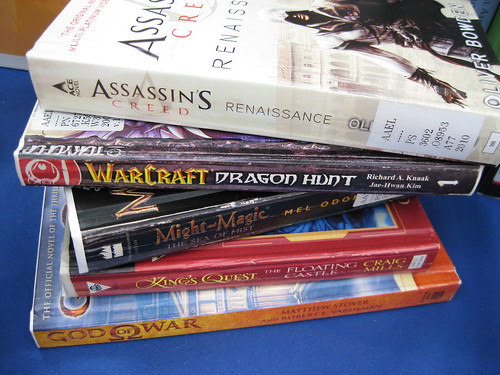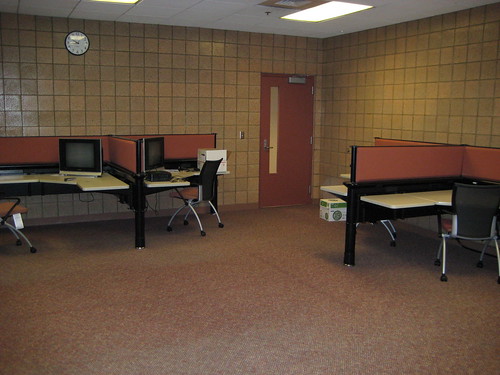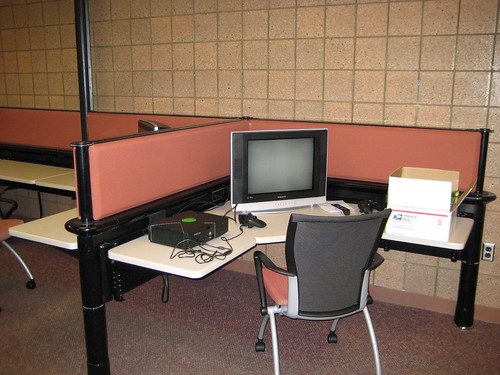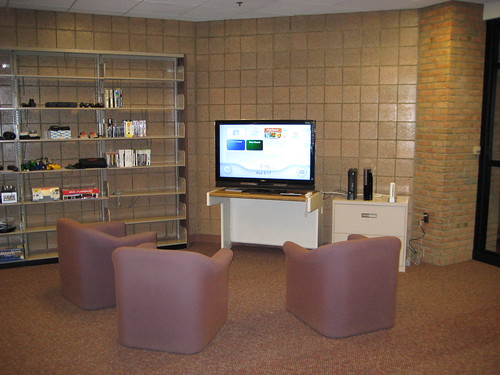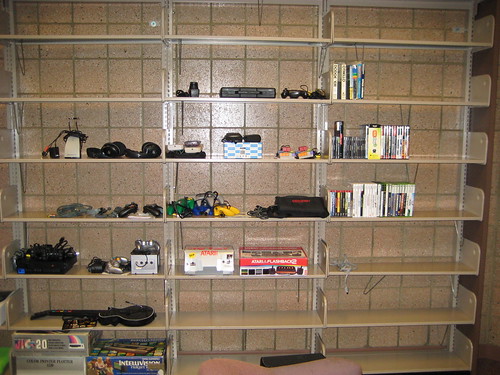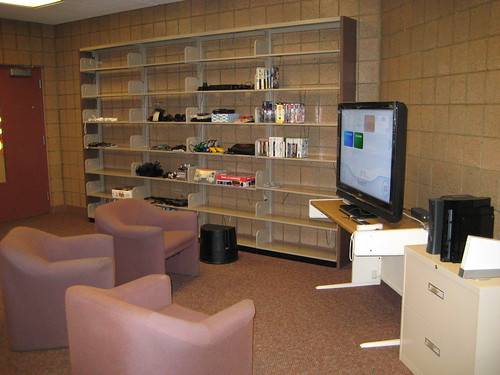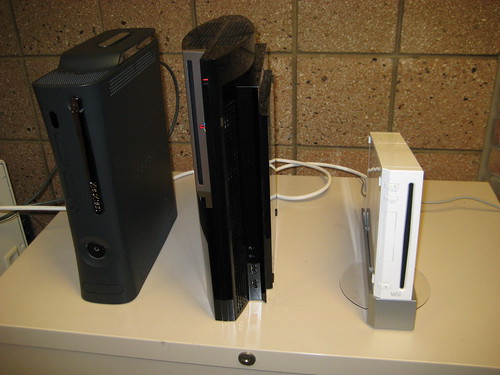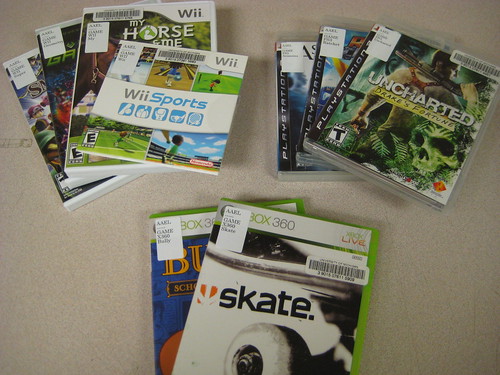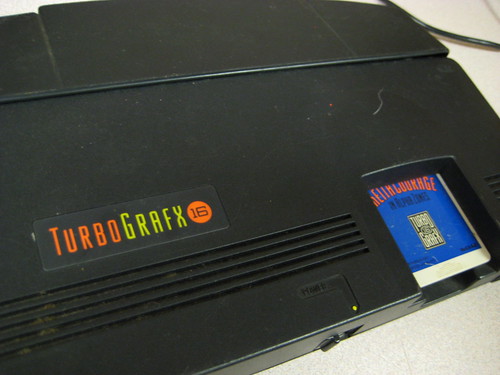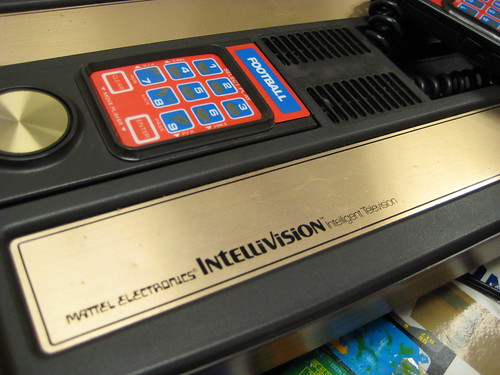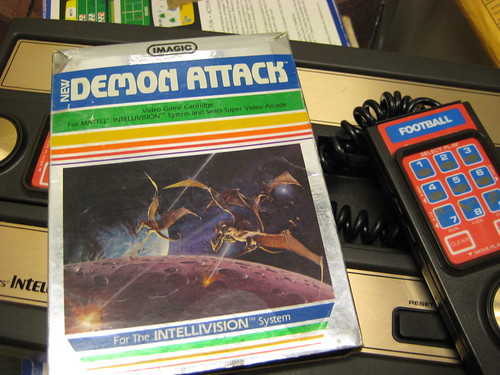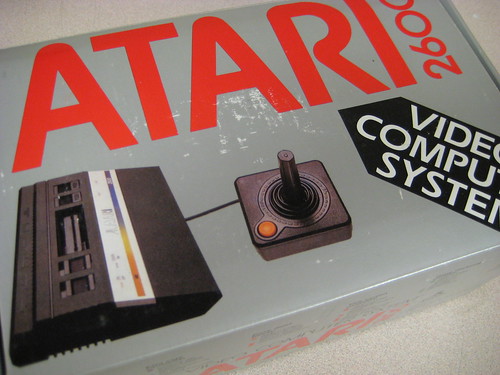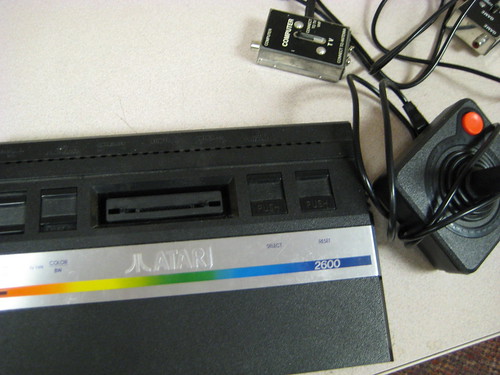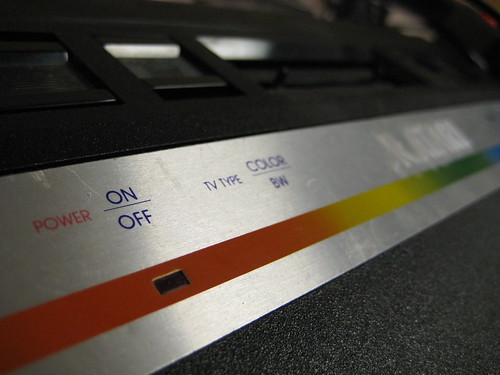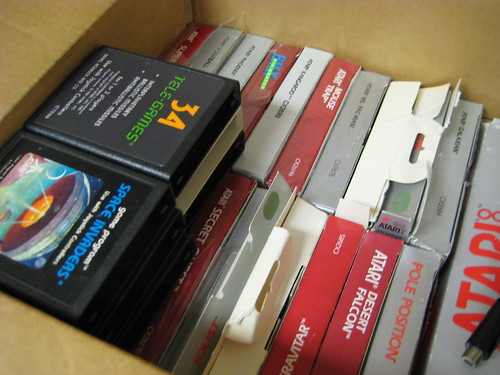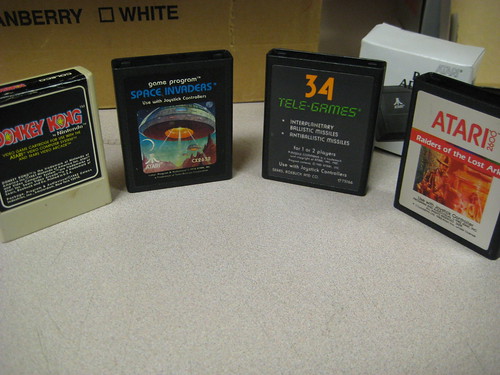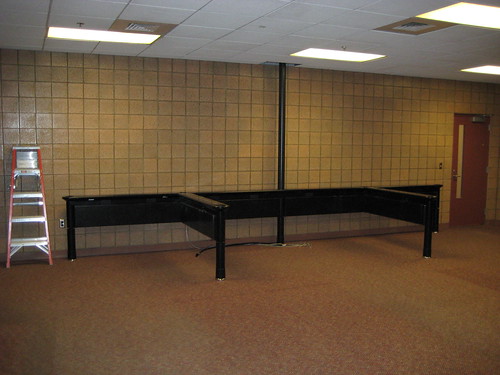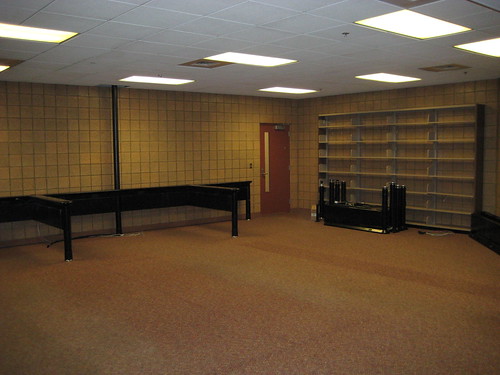Guest author Amanda Cote joins us again to share her thoughts on a popular topic at the recent ALA Conference: Video Games in Library Collections.
Combining Games and Libraries: Thoughts on the ALA Conference
At this year’s American Library Association (ALA) conference, which wrapped up yesterday, game designer Jane McGonigal presented the opening keynote. For many people who are unfamiliar with the tech-savvy libraries of today, this may seem like an odd choice. After all, libraries are often seen as losing out to the powers of digitization and the e-book.
This perspective, however, ignores the many ways in which libraries fit into the modern age of information. The Institute of Museum and Library Services reports that the number of public computers in libraries has more than doubled since 2003. This provides an essential service to individuals who lack home computing or Internet access, but who need computers to keep up with job or educational demands. The number of materials circulated by libraries per year in the US has also reached over 2.46 billion. Many of these materials are in digital forms such as e-books. Libraries and librarians are very on top of the digital world. With that in mind, games and libraries make sense as partners in a number of ways.
McGonigal’s keynote on games, for example, described a combined online/in-person game that helped young people collaborate on a book. Five hundred young adults attended an overnight event at the New York Public Library, where they followed virtual clues through the library stacks and collected information for personal essays on how to make history. Organizers combined the essays into a book, which is now part of the library’s collections. This localized game helped attendees explore the library’s offerings and learn significant historical information while also having fun. Over 10,000 people originally applied to be part of the experience, demonstrating its widespread appeal. Although very few libraries have the resources of the NYPL, this is only one example of how libraries can use video games to achieve educational, cultural, and even entertainment goals.
Educational Reasons
Perhaps the most obvious way in which games could be useful is from an education perspective, as providing informative learning opportunities is a major focus of libraries. But research into learning shows that people learn in different styles, and they can struggle extensively when forced to use a style that does not work naturally for them. Traditional book-learning may be effective for one student, but yield only frustration for another.
This is one area where the addition of games to libraries can have a major impact. Many games have specific educational goals, such as learning math or practicing typing. While it is useful for libraries to stock these games, the diverse resources of a library also allow games to be used in more subtle ways.
For instance, games and learning researchers James Paul Gee and Kurt Squire both write about semi-historical strategy games like Age of Mythology and the Civilization series. These games do not teach history itself, due to the players’ input and control. However, they can be used to motivate interest in a particular area; Gee writes eloquently about how seven-year-olds playing Age of Mythology in a field study then sought out books or webpages on mythology. Some even crafted their own myths, writing original stories based on mythical characters and creatures. The introduction of a fun game led to broader topical interests and creative efforts.
In other cases, games offer new takes on historical narratives; Squire, for example, describes how in history classes, students are generally taught about European colonization from a political perspective. Through playing Civilization, they can also explore the way in which geographical conditions, like easy access to resources, matter to a culture’s success. When this information is added to or compared with their class narrative, students can reach new levels of understanding.
Through careful programming, libraries offer a perfect place to take advantage of games’ educational potential. Featuring a new game or game series, such as Age of Mythology, alongside a display of related materials will help library patrons make connections between games and real world history. Talks by authors or editors of associated books, like a collection of Greek myths, could also draw interest and expand on in-game learning.
Another way to make educational use of patrons’ interest in games is to connect their playing to other relevant areas. Materials on computer programming or game design, for instance, may encourage interest in a technological career, demonstrating how gaming can connect to concrete jobs. Libraries with computer consultants can even offer software training classes to help jumpstart this process among interested patrons. Alternately, libraries that have fewer internal resources could partner with local community colleges or tech schools.
Libraries have the resources necessary to connect the fun aspect of games to their educational aspect. Doing so may require careful programming and collaboration with experts (teachers, game designers or topic specialists), but game-oriented programs can yield impressive results.
Cultural Reasons
Games and libraries are also a great match due to games’ cultural impacts. Not only have games become a major part of popular culture, referenced in film and television on a regular basis, but they have also achieved higher significance as well. Scenes from games have been put on display at museums as prestigious as the Smithsonian American Art Museum. And they’ve even been the heart of important political debates, such as whether video games can be related to aggressive behavior or whether they deserve free speech protections. Libraries that want to provide their patrons with significant cultural and historical information should not overlook the importance of video games.
Books and the Internet may be enough to acquaint patrons with the history of games and computing. However, an archive of classic and modern games can bring that history to life, helping people visualize how graphics, mechanics and computing power have changed over time. For instance, our own CVGA has hosted retro video game nights in the past. Showcasing systems like the Atari or a Commodore 64 can help players develop more concrete knowledge about early games; younger generations of gamers may be astounded both by the limited graphics and by how fun many early games actually were.
Libraries can also collect game-related materials, such as advertisements or magazines. These materials can be extremely fun to explore, but they have great educational potential as well. From an academic perspective, I have been able to use the CVGA archive of gaming magazines to analyze how game marketing has changed over time with regard to gender. Game-related archives do more than preserve the history of games; they also showcase unique and important aspects of the past, demonstrating how society has changed over time with regard to its media use.
Entertainment Reasons
Last but not least, games have important entertainment value that can help libraries achieve success. Across the country, many libraries are facing funding cuts. Research on how libraries can more effectively advocate for funding demonstrates that providing information is not enough; libraries need to position themselves as a significant force in the community, bringing people together in a way that other local offerings do not. A video game collection and related programming could be one potential strategy for community building. In fact, libraries that already offer in-house gaming or game checkouts have seen many benefits, including greater circulation of non-game materials.
In terms of socializing, a game library has benefits. Many popular games such as the Mario Kart, Just Dance and Smash Brothers series are meant to be multiplayer; competing against other players who are in the same room offers a fun communal activity that cannot be completely imitated through online play. Although tempers may run high, and the selection of games for competitive play should be carefully chosen, events organized around gaming can make for unique community-building efforts.
Even without specific programs planned, the entertainment value of games could even help draw in new visitors. Following the death of video stores like Blockbuster, many gamers have found themselves without access to rental games. For players who tend not to replay games or who don’t want to buy a game that they may not like, a library that allows patrons to checkout games would be a great resource (and 15% of libraries already have programs in place for this purpose).
Further Suggestions
The ways in which games could be used to achieve a library’s goals are endless, and the suggestions provided by McGonigal at the ALA conference and within this post are only a starting point for librarians seriously interested in using games effectively. Further resources can be found at the ALA site, or through consultation with one of the many libraries that currently have game offerings.
Developing a video game archive can be expensive; new games from major publishers average sixty dollars each, while console release prices have ranged from $250 (the Nintendo Wii) to $600 (the PlayStation3). However, libraries need not offer the newest, top-of-the-line equipment in order to program effectively, and many older games and systems can be bought cheaply. Interested librarians should also be careful to acquaint themselves with the Electronic Software Ratings Board (ESRB) ratings for video game content, to ensure that purchased games are appropriate for the library’s audience.
Through careful game selection and well-developed programming, games and libraries can be a perfect match!
